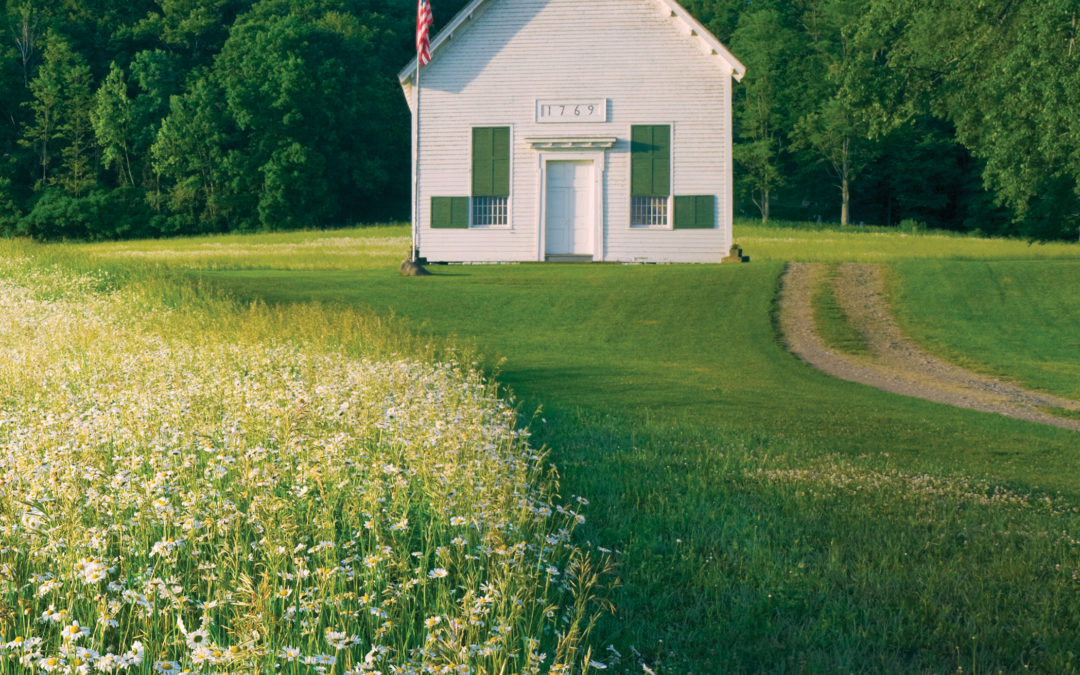For many congregations, summer is a time of reduced activity. Perhaps we move to offering one worship service on Sundays. Many congregations with midweek spiritual development opportunities suspend them for the summer. Some congregation councils go on a summer hiatus if it’s impossible to find a time when everyone is in town. But summer also offers some unique opportunities, especially during the holy month of June. The church calendar is rife with possibilities for worship and celebration.
PENTECOST
Seven weeks after Easter, this year one of the church’s highest holy days falls in June, launching a church season that lasts until Advent. This holiday often takes a back seat to Christmas and Easter, but it’s a shame to let this opportunity slide by. Pentecost gives us worship possibilities beyond just encouraging everyone to wear red or bringing a birthday cake for the church. Some congregations wave red and gold streamers during the processional on Pentecost Sunday. Since it doesn’t require much coordination or courage to walk the sanctuary aisles waving streamers on a stick, this is an attractive option for those who might not otherwise take a leadership role in participatory worship. You’ll find lots of suggestions online; if you have lots of time, search Pinterest for Pentecost and prepare to feel both overwhelmed and inspired.
THE FEASTS OF JOHN THE BAPTIST AND COLUMBA
If Pentecost leaves you wanting more of these opportunities, perhaps this is the summer you decide to celebrate feast days. June offers two: the feast day of John the Baptist (June 24) and the feast day of Columba (June 9). Traditionally, many Lutherans haven’t done much with feast days, but the more I learn, the more I yearn for what they promise: inspiration, enrichment for our spiritual lives and a means of learning more about heroes of the faith who might be otherwise lost to us.
Most will be familiar with the story of John the Baptist, but revisiting his life might give us new appreciation for a prophet who spoke truth to power. Maybe you’re wary, thinking: John the Baptist? Isn’t that the one who called us all a brood of vipers? But God does not send prophets because we’re all already damned. God sends prophets to call us back to the path on which we should be travelling. After all, summer is a time when many of us slack off. It’s good to be reminded by a truthful prophet that we have a mission.
The story of St. Columba gives us other reasons to celebrate. One of the great early Irish Christians, some credit Columba with spreading Christianity to Scotland. He also helped spread literacy and founded a school for missionaries. He’s associated with Iona, that thin place in Scotland that remains an important force in Christianity to this day. I could argue that some of the most exciting music and liturgy of our current time comes to us because Iona exists. The month of June would be a great time to explore these resources.
But there’s more to the story of Columba than triumph. St. Columba had to leave Ireland because of a dispute with another monk that led to a pitched battle in which many men were killed. Instead of being excommunicated, Columba was made to serve as a missionary to Scotland. At that time, Scotland was a fierce and scary place. But Columba sailed off with his supporters and managed to turn punishment and exile into something positive. It’s a message most of us need to hear, that out of ashes can come new life.
THE DIET OF AUGSBURG
Those of us who take pride in our Lutheran roots can celebrate the anniversary of the Augsburg Confession, presented to the Diet of Augsburg on June 25, 1530. The Augsburg Confession is one of the central documents of faith in the Lutheran expression. If you’ve never read it, it’s widely available online (gathermagazine.org/augsburg). Summer months can offer free time that other seasons don’t, so why not consider some reading that may be a little more challenging?
TRINITY SUNDAY
If the Augsburg Confession is too dry for your summer reading, Holy Trinity Sunday is a good time to consider the triune nature of God. God lives in community, both with the various aspects of God (Creator, Savior, Spirit) and with us. Akin to contemplating the infinity of space, this image baffles our rational minds. Perhaps our brains aren’t large enough, or we don’t know how to use them in that way—at least until we challenge ourselves in new ways. And what better time than summer?
FATHER’S DAY
Some of us may hesitate to celebrate these secular holidays in our sanctuaries, but if we celebrate Mother’s Day as a congregation, we should also celebrate Father’s Day. We can celebrate the larger idea of fathering, so that we don’t cause anguish to those who find the subject of fatherhood painful—and there are so many ways to find the topic painful. As a church, we can strive to be a healing force on issues of fatherhood.
We might consider beginning some sort of initiative on Father’s Day. Perhaps some of us will become mentors or additional positive influences for those in the community who seek more guidance. In the summer, many communities may not offer much for individuals and families in need of parenting help. Our congregations could do this.
VBS & CHURCH CAMPS
One way that many of our congregations attempt to help parents and children is vacation Bible school, which, for many congregations, happens in June. In smaller congregations, this effort can involve almost every member. Let’s remember to support VBS where we can and pray for all
who make this important ministry happen.
Many unchurched children will get their only taste of church from experiences like VBS. As we prepare for VBS, let’s also plan how to welcome back children and their families throughout the year. I know of several congregations who see VBS children return at Christmas. How might we offer more invitations?
June also brings the start of church camps. Like VBS programs, church camp settings offer many children their first knowledge and awareness of God’s kingdom. Early in the month of June, let’s pray for the success of church camps, counselors, campers and their parents.
We have other reasons to pray. For those of us on coastlines, June is the start of hurricane season. We’ve had several difficult hurricane seasons recently, so as we settle into June, let’s remember to pray for all who are in the paths of storms.
JUNETEENTH
Alongside many African American Lutheran and ecumenical partner congregations, your congregation might use adult education time to explore the holiday of Juneteenth.
Juneteenth commemorates June 19, 1865, the day people enslaved in Texas first heard that the January 1, 1863, Emancipation Proclamation had freed them. Some celebrations use the day to present facts about African American culture and achievements. Clergy and lay leaders might also draw connections with the forces that today hold us all enslaved and the liberating power God longs to be for us.
Juneteenth may also be the oldest celebration of the end of extreme religious oppression in the U.S. Before the proclamation, people of African descent were forced to worship in secret in some places, including South Carolina, where all-Black congregations were against the law. In the U.S., there is a long history of violence against Black churches, including the 1963 murders of four little girls in the bombing of the 16th Street Baptist Church in Birmingham, Alabama; firebombings in the 1990s; and the 2015 murders of nine Black people at Emmanuel African Methodist Episcopal Church in Charleston, South Carolina. For the ELCA, it was an intensely personal tragedy: Dylann Roof, was raised in an ELCA congregation, and two of the murdered churchgoers, the Rev. Clementa Pinckney and the Rev. Daniel Simmons, were graduates of Lutheran Theological Southern Seminary, which is part of Lenoir-Rhyne University in Hickory, North Carolina. After the tragedy, ELCA Presiding Bishop Elizabeth A. Eaton urged the church to talk, listen and act. “No stereotype or racial slur is justified,” she said. “Speak out against inequity… Above all pray—for insight, for forgiveness, for courage.” June is a good time to start or continue steps toward understanding and justice.
The month of June offers such a wealth of holy opportunities that we can’t possibly pursue them all. But we can resolve that this year will not be the year that we neglect them all—just because some members of the flock have wandered away on vacation.
Dr. Kristin Berkey-Abbott earned a Ph.D. in English from the University of South Carolina. She currently serves as director of education at the Hollywood (Florida) campus of City College.
This article is excerpted from the June 2019 issue of Gather magazine. To read more like it, subscribe to Gather..
Gather offers Lenten devotional
As we approach the Lenten season, you may be looking for a devotional to carry you through the...
The winter storm
The rain is loudly pounding on the old metal roof of the refurbished farmhouse I call home....
Hide and seek: What Advent taught me about grief
By Emily Wiles WHEN I WAS YOUNG, I was a champion seeker in the game of hide and seek. I had an...






Thanks for letting us know, Carolyn! We’ll send you another issue. Also, you can always call (844) 409-0576 or email: [email protected] to request a replacement for missing issue.
–the editorial staff of Gather